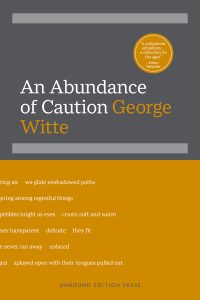
982579
In addition to our Chapter & Verse feature, enjoy more books in the spring 2023 issue. Read the monthly “Bookmark This” feature by searching those terms on the College website.
The World Atlas of Trees and Forests (Princeton University Press) by Peter White, Herman Shugart, Sassan Saatchi and Jérôme Chave. White is professor emeritus of biology and past director  of the North Carolina Botanical Garden. The earth’s forests are havens of nature supporting a diversity of life. Shaped by climate and geography, these vast and dynamic wooded spaces offer unique ecosystems that shelter complex and interdependent webs of flora, fungi and animals. The illustrated book offers an introduction to what forests are, how they work, how they grow — and how we map, assess and conserve them. The book won the 2023 Dartmouth Medal for Outstanding Reference Work from the American Library Association and the PROSE Award in Environmental Science from the Association of American Publishers. Read a “Bookmark This” Q&A about the book.
of the North Carolina Botanical Garden. The earth’s forests are havens of nature supporting a diversity of life. Shaped by climate and geography, these vast and dynamic wooded spaces offer unique ecosystems that shelter complex and interdependent webs of flora, fungi and animals. The illustrated book offers an introduction to what forests are, how they work, how they grow — and how we map, assess and conserve them. The book won the 2023 Dartmouth Medal for Outstanding Reference Work from the American Library Association and the PROSE Award in Environmental Science from the Association of American Publishers. Read a “Bookmark This” Q&A about the book.
Who We Are Now: Stories of What Americans Lost and Found During the COVID-19 Pandemic (UNC Press) by Michelle Fishburne (political science ’84). When Fishburne lost her job, she did the unthinkable during the early days of the COVID-19 pandemic: She motor-homed 12,000 miles all over the United States and sat down with hundreds of people face to face. People shared with her what their lives were like, what made them struggle and what surprised them. The testimonies in this book offer a glimpse into what people across America lost and found during the pandemic’s critical first year.
Dig It: Archaeology for Kids (Edelweiss) by Caitlin Sockin (archaeology and classics ’21) with contributions by Benjamin S. Arbuckle and Hérica Valladares.  Arbuckle is professor of anthropology and Valladares is associate professor of classics. Dig It takes readers on a tour through the fascinating world of archaeology, pausing along the way for glimpses into the past lives of people in ancient civilizations across the globe throughout time. The book includes beautiful visual illustrations, many of which include QR codes that kids and parents can scan to watch drone fly-over videos of archaeological sites and demonstrations of dig techniques. Read a “Bookmark This” feature about the book.
Arbuckle is professor of anthropology and Valladares is associate professor of classics. Dig It takes readers on a tour through the fascinating world of archaeology, pausing along the way for glimpses into the past lives of people in ancient civilizations across the globe throughout time. The book includes beautiful visual illustrations, many of which include QR codes that kids and parents can scan to watch drone fly-over videos of archaeological sites and demonstrations of dig techniques. Read a “Bookmark This” feature about the book.
Black Folk: The Roots of the Black Working Class (W.W. Norton/Liveright, June 2023) by Blair L.M. Kelley, Joel R. Williamson Distinguished Professor of Southern Studies, director of the Center for the Study of the American South and co-director of the Southern Futures initiative. Award-winning historian Kelley illuminates the adversities and joys of the Black working class through a stunning narrative centered on her forebears, placing the Black working class at the center of the American story. Spanning 200 years — from Kelley’s earliest known ancestor, an enslaved blacksmith, to the essential workers of the COVID pandemic — her narrative focuses on the laundresses, Pullman porters and domestic maids who established the Black working class as a political force. Read a Q&A with Kelley in The Well.
Native Agency: Indians in the Bureau of Indian Affairs (University of Minnesota Press) by Valerie Lambert. Lambert is an associate professor  in the department of anthropology and a citizen of the Choctaw Nation. The Bureau of Indian Affairs was hatched in the U.S. Department of War to subjugate and eliminate American Indians. Yet beginning in the 1970s, American Indians and Alaska Natives took over and now run the agency. This book describes the continuing assaults made on Native peoples and tribal sovereignty in the United States during the 21st century, and it sketches the visions of the future that Indians at the BIA and in Indian Country have been crafting for themselves.
in the department of anthropology and a citizen of the Choctaw Nation. The Bureau of Indian Affairs was hatched in the U.S. Department of War to subjugate and eliminate American Indians. Yet beginning in the 1970s, American Indians and Alaska Natives took over and now run the agency. This book describes the continuing assaults made on Native peoples and tribal sovereignty in the United States during the 21st century, and it sketches the visions of the future that Indians at the BIA and in Indian Country have been crafting for themselves.
The Cult of Stephen in Jerusalem: Inventing a Patron Martyr (Oxford University Press) by Hugo Méndez. Méndez is an associate professor in the department of religious studies. This book traces the rise of the cult of St. Stephen, the biblical figure traditionally regarded as the first Christian martyr, in Jerusalem during a time when martyr traditions were closely intertwined with local prestige. The book explores such historical episodes as the fabrication of St. Stephen’s relics, the construction of a grand basilica in his honor and the multiplication of the saint’s feast days. It argues that local church authorities promoted devotion to Stephen in the 5th century in a conscious attempt to position him as a patron saint for Jerusalem — that is, a symbolic embodiment of the city’s Christian identity and power.
Ybor City: Crucible of the Latina South (UNC Press) by Sarah McNamara (history M.A. ’12, Ph.D. ’16). Decades before Miami became Havana USA, a wave of  leftist, radical, working-class women and men from prerevolutionary Cuba crossed the Florida Straits, made Ybor City the global capital of the Cuban cigar industry and established the foundation of latinidad in the sunshine state. McNamara follows Latinas who organized strikes, marched against fascism and criticized U.S. foreign policy. While many members of the immigrant generation maintained their dedication to progressive ideals for years to come, those who came of age in the wake of World War II distanced themselves from leftist politics amidst the Red Scare and the wrecking ball of urban renewal. This portrait of the political shifts that defined Ybor City illustrates how people, places and politics become who and what they are.
leftist, radical, working-class women and men from prerevolutionary Cuba crossed the Florida Straits, made Ybor City the global capital of the Cuban cigar industry and established the foundation of latinidad in the sunshine state. McNamara follows Latinas who organized strikes, marched against fascism and criticized U.S. foreign policy. While many members of the immigrant generation maintained their dedication to progressive ideals for years to come, those who came of age in the wake of World War II distanced themselves from leftist politics amidst the Red Scare and the wrecking ball of urban renewal. This portrait of the political shifts that defined Ybor City illustrates how people, places and politics become who and what they are.
Teaching Public History (UNC Press, May 2023) edited by Julia Brock, Evan Faulkenbury (history M.A. ’12, P.h.D ’16). Public historians have debated the meanings of public history since the 1970s, but as the field of public history grows, the lack of pedagogical literature specific to the field has been challenging. This book addresses the need for a practical guide to teaching public history now. In 11 essays by esteemed public historians teaching at colleges and universities across the United States, this volume details class meetings, student interactions, field trips, group projects, grading and the larger aims of a course. Each essay contains wisdom and experience for how to teach a public history course and why such classes are vital for our students and communities.
This Isn’t Going to End Well: The True Story of a Man I Thought I Knew (Algonquin Books) by Daniel Wallace, the J. Ross MacDonald Distinguished Professor of English. In this powerful new book, the bestselling author of Big Fish tries to come to terms with the life and death of his multi-talented longtime friend and  brother-in-law William Nealy, who had been his biggest hero and inspiration, in a poignant, lyrical and moving memoir. This Isn’t Going to End Well is Wallace’s first foray into nonfiction. Part love story, part true crime, part a desperate search for the self, the book tells an intimate and moving story of what happens when we realize our heroes are human. The book was named a “most anticipated book of 2023” by Garden & Gun magazine, BookPage, The Atlanta Journal-Constitution and Deep South Magazine.
brother-in-law William Nealy, who had been his biggest hero and inspiration, in a poignant, lyrical and moving memoir. This Isn’t Going to End Well is Wallace’s first foray into nonfiction. Part love story, part true crime, part a desperate search for the self, the book tells an intimate and moving story of what happens when we realize our heroes are human. The book was named a “most anticipated book of 2023” by Garden & Gun magazine, BookPage, The Atlanta Journal-Constitution and Deep South Magazine.
Guardians of the Valley: John Muir and the Friendship that Saved Yosemite (Simon & Schuster) by Dean King (interdisciplinary studies ’85). This dramatic and uplifting story tells the tale of legendary outdoorsman and conservationist John Muir’s journey to become the man who saved Yosemite. Guardians of the Valley is a moving story of friendship, the written word and the transformative power of nature as it details the watershed moment that led to the creation of Yosemite National Park and the launch of an environmental battle that captivated the nation and ushered the beginning of the American environmental movement. Read a review in The New York Times.
Sweet Land of Liberty: A History of America in 11 Pies (Abrams Books) by Rossi Anastopoulo (interdisciplinary studies and global studies ’17). Sweet Land of Liberty is a delicious and delightful narrative history of pie in America, from the colonial era through the civil rights movement and beyond. Award-winning food writer Anastopoulo  cracks open our relationship with pie with wit, history and good humor. There are corresponding recipes for each chapter and sidebars of quirky facts throughout. Anastopoulo’s writing has appeared in TASTE, Saveur, Food52, Bon Appetit and Eaten Magazine.
cracks open our relationship with pie with wit, history and good humor. There are corresponding recipes for each chapter and sidebars of quirky facts throughout. Anastopoulo’s writing has appeared in TASTE, Saveur, Food52, Bon Appetit and Eaten Magazine.
Transnational Culture in the Iranian Armenian Diaspora (Edinburgh University Press, May 2023) by Claudia Yaghoobi, director of UNC’s Center for Middle East and Islamic Studies and Roshan Institute associate professor in Persian studies. Yaghoobi’s new book examines the ways that diasporic Iranian Armenian authors and artists negotiate their identities in Iran and the United States. Transnational Culture blends scholarly and personal history with literature, film and art. James Barry of Deakin University writes: “It is a fresh and nuanced study that approaches the subjects of minorities, race and migration through a non-western lens.” Read an article about Yaghoobi in The Well.
The Private is Political: Networked Privacy and Social Media (Yale University Press, May 2023) by Alice E. Marwick, associate professor in the department of communication and principal researcher at the Center for Information, Technology and Public Life. Online privacy is under constant attack by social media and big data technologies. But we cannot rely on individual actions to remedy this — it is a matter of social justice. Marwick offers a new way of understanding how privacy is jeopardized, particularly for marginalized and disadvantaged communities. Through a new theory of “networked privacy,” she reveals how current legal and  technological frameworks are woefully inadequate in addressing issues of privacy — often by design.
technological frameworks are woefully inadequate in addressing issues of privacy — often by design.
An Abundance of Caution (Unbound Edition Press, May 2023), a book of poetry by George Witte (M.A. English ’84). Witte is editor in chief of St. Martin’s Press. In An Abundance of Caution, Witte lends voice and body to the crucial work of finding grace in a time marked by environmental crisis, a global pandemic and personal loss. The poems answer uncertainty with clarity, imagination and compassion. Witte’s previous poetry collections were The Apparitioners, Deniability and Does She Have a Name? His poems have been published in a range of journals and anthologies, including The Best American Poetry. Henry Hart writes of the latest collection: “These poems remind us that … we can still enjoy mysterious moments of grace.”
Read the Chapter & Verse feature on Fitzhugh Brundage’s new book, A New History of the American South.
Published in the Spring 2023 issue | Chapter & Verse
Read More

McDonald named senior associate dean
Noreen McDonald was named senior associate dean for social sciences…

New director of Jewish studies center brings love of classics to her role
Patricia Rosenmeyer takes the helm as the Carolina Center for…


